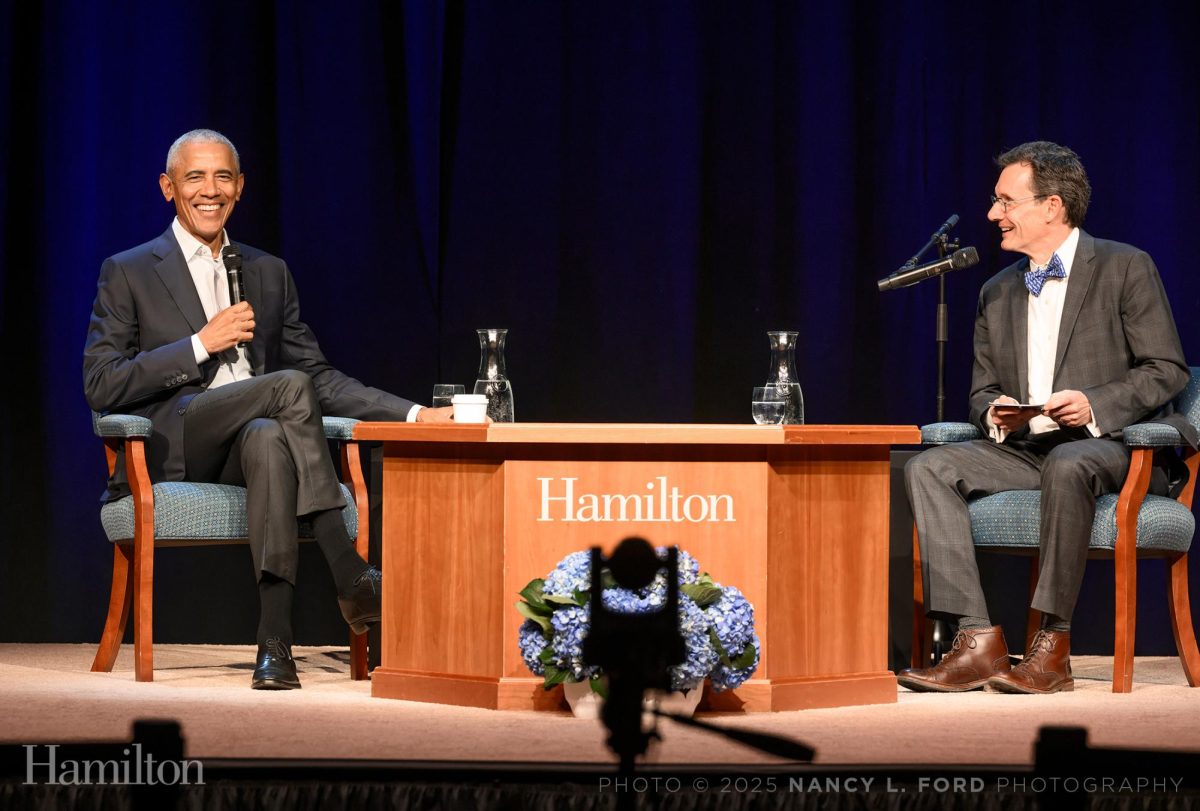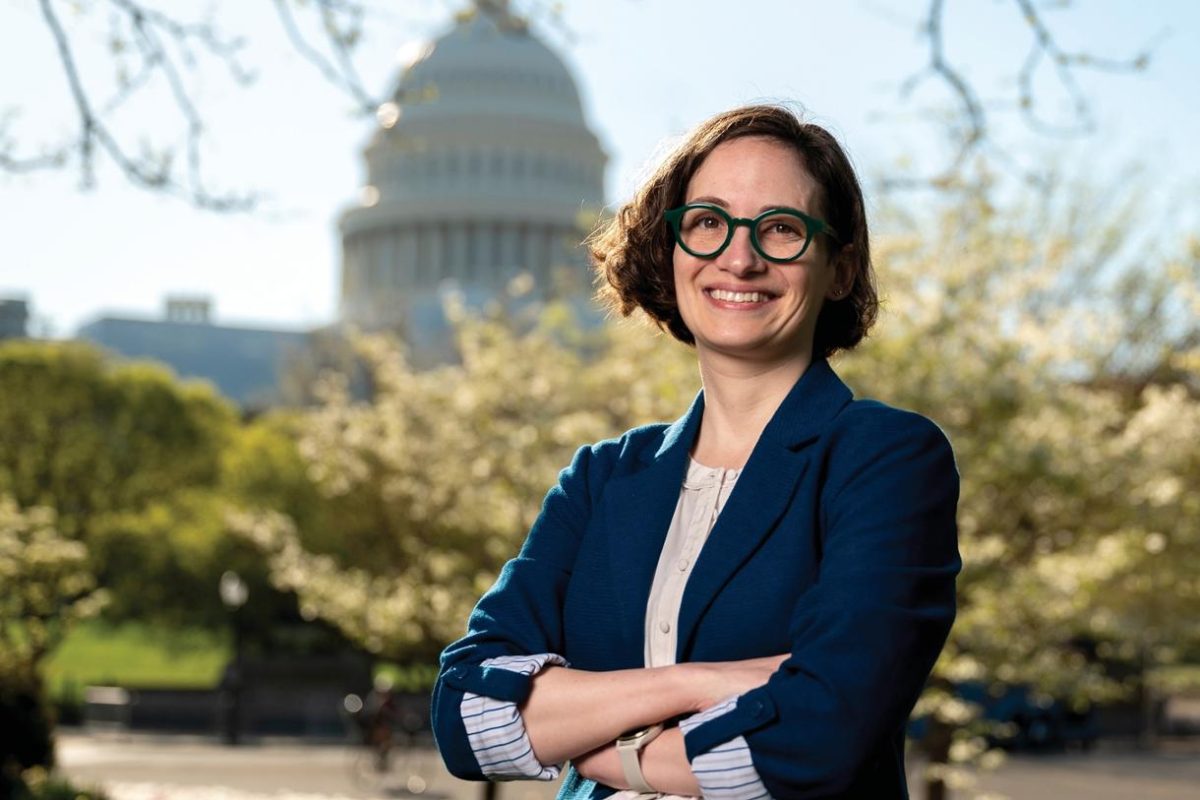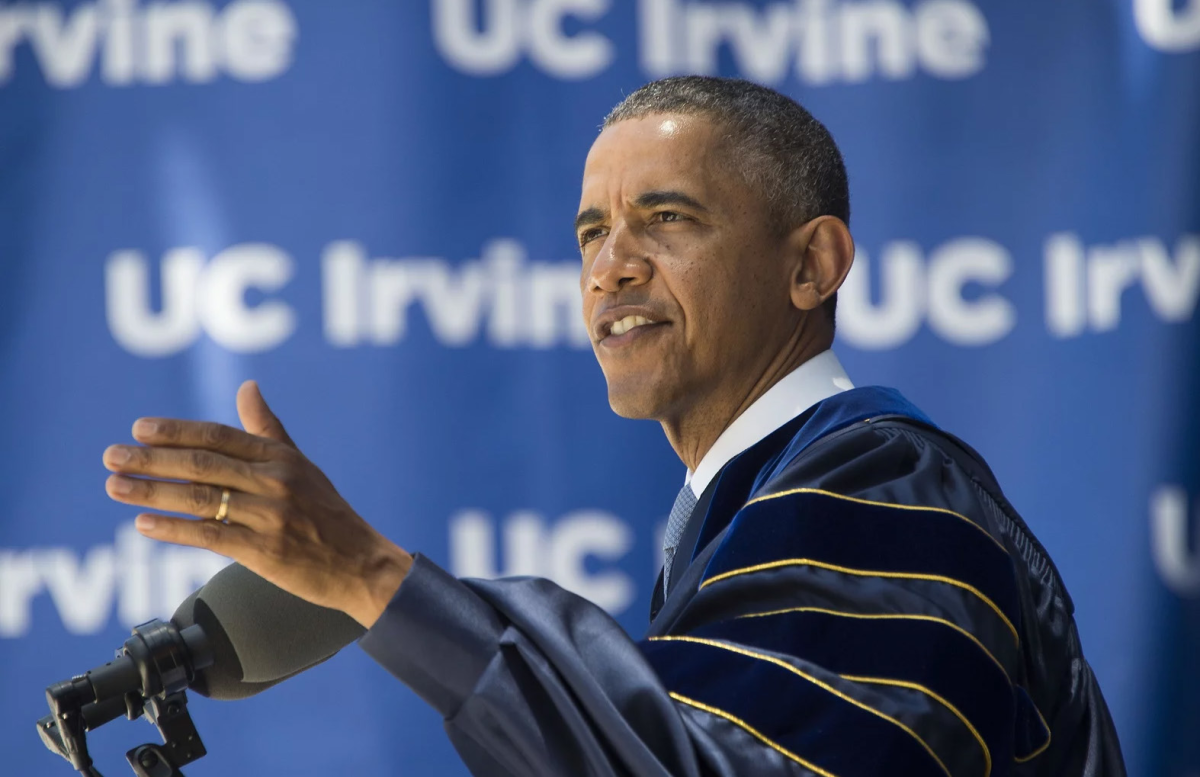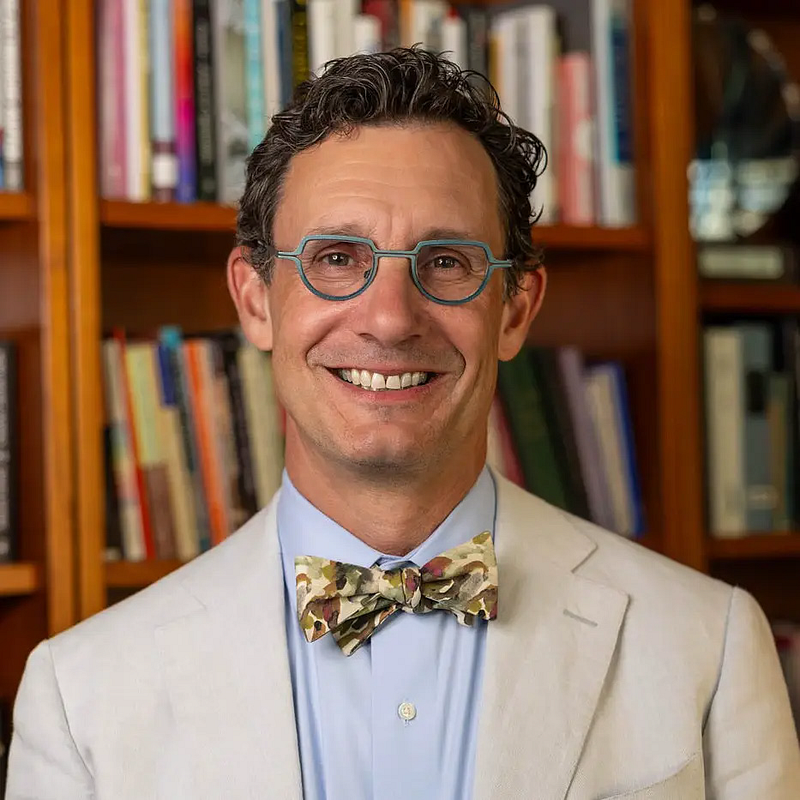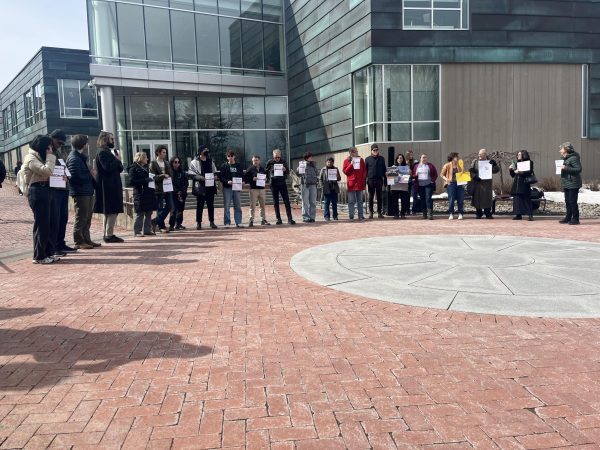
Starting Friday, Mar. 7 and continuing through to Friday, Mar. 14, faculty members of Phi Beta Kappa led a total of four protests across campus against recent cuts to federal funding of educational programming. A variety of programs across the federal government, including critical academic opportunities such as the Fulbright program, were cut over the past few months by the Department of Government Efficiency (DOGE). Protests each focused on a specific area affected by the cuts, covering the sciences, humanities, arts and Fulbright scholarships.
Protests started on Friday, Mar. 7 with Stand Up for Science 2025, a national protest with branches across the country and its main rally in Washington D.C. From the Stand Up for Science 2025 website, the protests had three main policy goals: to end censorship and political interference in science, to secure and expand scientific funding and to defend Diversity, Equity, Inclusion and Accessibility in science. Gathering in the snow outside the Taylor Science Center, students and faculty alike held up signs describing why they stood up for the sciences.
Courtney Gibbons, who had recently been terminated from her role in the National Science Foundation, explained that “there are three big policy buckets that Stand Up for Science would like to see. We’d like to end government censorship of science, and that includes pulling data from federal government websites. It includes telling scientists what they can research. It includes pulling funding. We want to ensure that science is robust so that we can compete on the international stage. So that our science workforce can continue to learn and grow and break boundaries. And we want to ensure that science continues to appreciate diversity, equity, inclusion and accessibility, because you can’t do great science without all your talent on the table.”
The Trump administration has an increasingly growing list of banned terms, including “transgender,” “Black,” “women” and “men,” which have been scrubbed from any government website along with whatever piece they were a part of, as reported by the New York Times. This ban has censored a litany of scientific papers from government websites, and has thus removed access to them by the public and other academics. Furthermore, DOGE has cut national funds allocated for use in the sciences, some of which were in grants previously earned by Hamilton College, as previously reported by The Spectator.
Some of these cut programs directly improve the lives of Hamilton College students. One of these students, Amelie Heying ’27, told The Spectator, “I’m a type one narcoleptic. I’ve been diagnosed with that recently, and the only reason why I was able to come back to school is due to medical initiatives that have studied type one narcolepsy, which incidentally have recently been canceled under Trump’s administration.”
She continued, “It’ll definitely affect my ability to conduct research in the future in terms of disability stuff. It could affect my ability to work if improvements are made in medication and things like that…I think the problem also isn’t necessarily with what impacts me, but what’s going to impact the world more generally. Like, I’m in a pretty privileged place where I’m a white woman who’s going into physics, but I have a nice background in physics. For people from underprivileged backgrounds, this could be catastrophic and change the field of physics as we know it.”
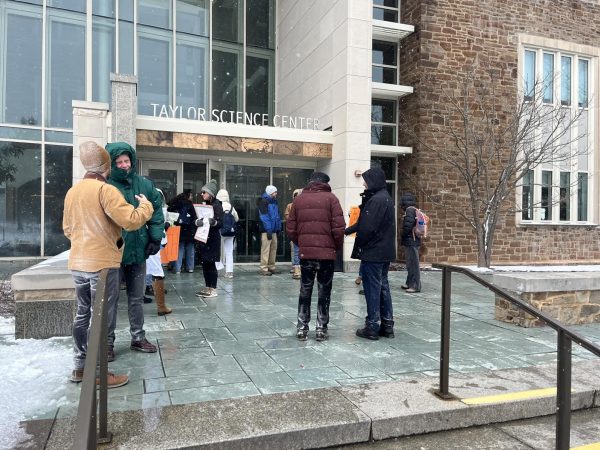
Following the initial protest, a total of three additional protests were held by Phi Beta Kappa over the week of March 9, including Stand Up for Humanities on Monday the 10th outside of Root Hall, Stand Up for Fulbright on Wednesday the 12th outside of KJ, and Stand Up for the Arts on Friday the 14th outside of KTSA. According to Margaret Thickstun, Chair of the Literature and Creative Writing Department and Secretary of Hamilton’s chapter of Phi Beta Kappa, “Courtney Gibbons and I were talking after the science protest on Friday and decided that Phi Beta Kappa should sponsor a series of protests defending all of the parts of the liberal arts.”
Hamilton College has continued to be a top producer of Fulbright scholars for the past 21 years, a program that has now been cut by DOGE. In solidarity with the program, students and faculty gave their stories and experiences with the Fulbright program outside of KJ.
One of these Fulbright recipients, Professor of International Relations Alan Cafruny, told the crowd about his experience with Fulbright. He said, “I had a Fulbright in 2013-14 in Moscow at the Higher School of Economics, and it was one of the best experiences of my life. I got to know many, many Russians, both my faculty colleagues but also students. I taught a course for the whole year to undergraduate, upper level undergraduate Russian students. I’m still in touch with many of them. Some of them are in Ukraine, and it was a great way to get to understand Russian culture, Russian politics and Russian economics. And we have had…many, many Hamilton students go on for Fulbright, so many of my students over the years. I would guess 20 or 30 that I’ve had over the years who have been on Fulbright. And so again, it’s a program that’s well worth defending. As we all know, the Trump administration just yesterday slashed the education department in half as a prelude to complete elimination of the program. So we know what’s happening at Columbia University, and this is going to be happening all across the board. It’s really good for Hamilton faculty and Hamilton students to be aware of this and to begin organizing against it.”
Taking the microphone in hand, Professor of History Lisa Trivedi said, “what we have is actually a two-way street, and it means that cuts to this program not only stops Americans from enjoying experiences with other communities across the globe, it means that scholars and students from those countries are not going to be coming to this country as well. One of the most important things I did as a faculty co-writer on my last trip in India was…speaking to Indian students who were interested in coming to this country for higher education. And I just want to throw out there that this is a program not just speaking about educational opportunities. It’s also about citizen to citizen communication as the foundation for a more peaceful and just world.”
Associate Professor of Classics Anne Feltovich continued the rally by saying, “So Fulbright essentially contributed to your education by educating me in graduate school. They paid a mere $18,000, which is a small sum of money with which they paid for an entire year’s worth of food, lodging and education…I was marched around Greece by an archaeological boot camp, educated by the world’s foremost experts on Greek archaeology, on every single piece of rock in the entire country. And for that small investment, I am a much better teacher. It certainly helped me get employed at elite colleges that always thought it was very attractive that I have this rich expertise, not only in literary studies, which was my original training, but also material culture. I’ve made international contacts all around the Mediterranean. I use these contacts to help my students get scholarships, excavations, study abroad programs and graduate school entry. Other people in other countries contact me because they remember me. They use that to connect their students with an American professor or with my area of expertise. So a very small investment 15 years ago is paying dividends and dividends and dividends in your education right now.”
Shraddha Datta ’25 commented on the effects of Fulbright on Hamilton students, saying that, “I was talking with a group of my friends and another professor about how Fulbright is one of those opportunities that American students get to sort of burst their bubble and be able to look beyond, you know, American imperialism, and I think that’s such an important aspect to our education here, considering that we’re on the hill, considering that we’re in the bubble.”
Faculty members expressed their concerns with loss of funding beyond just Fulbright across the protests. One of these professors, Associate Professor of Chemistry and Director of Biochemistry and Molecular Biology Max Majireck, commented on his loss of grants. He said, “In one of the early executive orders, the Trump administration had frozen NSF and NIH grants so that they could redo that. This was ruled quickly by the courts as illegal because Congress has the power of the purse, and they allocated this grant to me, actually in 2022. So, essentially, they reached back in time and told me that I couldn’t do the government contracted research. Now I’m fortunate because I’m in a really good facility. My tenure at Hamilton is lucky, to have some research grants, but I have friends who are regular, everyday people like the rest of us that are scientists. They depend on these grants to pay salaries, pay their rent, buy their groceries.”
Adding on to Majireck’s piece, Assistant Professor of Physics Viva Horowitz said, “I think when the government breaks a contract, what does that mean about contracts? Like, does our entire society no longer trust each other? Like, if the government is breaking contracts, then nobody can trust anybody.”
Professor of Chinese History Thomas Wilson, told The Spectator about his history with federal grants from the National Endowment for the Humanities (NEH). He said, “The NEH has underwritten much of my research. And of course, NEH is one of those federal organizations that’s essentially on the chopping block.”
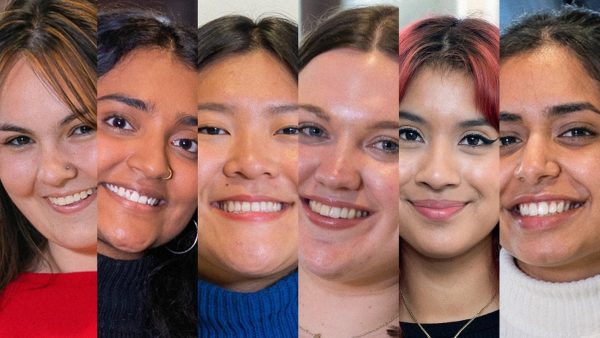
He continued, “I’ve received three different year-long grants from NEH, but I think what’s really important to keep in mind is what I actually do during these years off. When I do research, it profoundly changes what I actually do in the classroom. I’ve come back from year long leaves looking at a course syllabus from before [saying] I don’t accept this anymore, and so I’ve been utterly transformed by these research opportunities.”
Recent policies from the Trump administration have targeted the federal funding of colleges and universities with teachings and practices outside the desires of the administration. On Mar. 7, $400 million was withheld in grants and funding from Columbia University for their pro-Palestinian protests last year, which remained withheld after the university agreed to suspend or expel students participating in these protests, according to the AP. Furthermore, a Palestinian student at Columbia University, Mahmoud Khalil, was detained by Immigration and Customs Enforcement (ICE) despite having a Green Card for his involvement in the pro-Palestinian protests.
Commenting on the possibility of Hamilton College being federally targeted by “hostile interests,” Assistant Professor of Russian Languages and Literatures Jason Cieply said, “I think it’s unlikely we will be among the first 10 or 20 institutions who have funding, for instance, withheld because of freedom of speech practices or because of our curriculum, but it is conceivable that in the next year or two they get around to us and start dictating what it is we teach, what voices are allowed to be heard. We need to have a plan. Then we need to be united around, whatever political differences might separate us, the core values of freedom of expression and freedom of scientific and intellectual inquiry.”
With microphone in hand, at the Fulbright protest, Derya Arikan ’26 told the crowd, “When we stand out here with resources being taken away from us, we must also, I think, not lose sight of the bigger picture. Interrupted funding means interrupted studies. We also take for granted that our lives can carry on uninterrupted. Mahmoud Khalil, a grad student in Columbia, in our state, got abducted and disappeared. He was targeted because he is Palestinian and because he is loudly advocating for the humanity of Palestinians. He got disappeared for, and I quote, threatening U.S. foreign policy and national security interests, and by official admission, he was not breaking any laws at all. There was no legal basis for his abduction and detainment. So when we talk about legality and illegality, this is something we must keep in mind.”
Within these protests there was discord over how and what to protest. A member of Students for Justice in Palestine (SJP) told The Spectator, “[SJP has] been putting on protests like these, preemptively, talking about the attack on humanities, specifically professors who teach humanities and taking a stand against the genocide, and also especially humanities professors in the genocide that are getting killed.”
He continued, “So it’s kind of aggravating to see faculty now take up this banner, of like, ‘you have to protect humanities and free speech or whatever,’ but only after their funding has been cut, and not because people are dying, the people in their field especially are dying and they’re losing lots of academic material. So I feel like it’s important to show up to these and also to critique and use it, because this is where the people are. So I want to use the space to bring a platform to Palestine and specifically the way that all these academics have ignored us, the student activists, for the past year now.”
In a follow-up interview, Lera said, “I think it’s important to note that ICE is doing raids right now, especially on academic campuses, especially for students that have been active in their activism. And it’s I think it’s really gross how the people, especially academics, are wanting to present this protest as something that’s apolitical, like standing up for humanity is apolitical and disconnected from the fight against ICE, the fight for Palestine, the fight for transgender rights, and how they only show up now because they find it’s apolitical, because they think it’s apolitical. None of these things are apolitical. People from your field, again, are being disappeared for one reason or another.”
Ending her speech on Martin’s Way just outside of KTSA, Datta said, “I also believe that there’s so many things that the Trump government is targeting, from Fulbright to humanities to science … to the safety of our students. I think a lot of us who are more vulnerable to recent Trump executive orders are scared and anxious because what we say is going to remain legal is actually potentially going to become illegal. And a lot of us students are really scared by the inaction of the [Hamilton] administration by, you know, sitting around and doing nothing about it. And so I’m really glad that we’re here today and we’re mobilizing together as a community to talk more about the impact of the current Trump administration on us, but not only just that but also the impact on what’s going on overall in the wider world.”



















